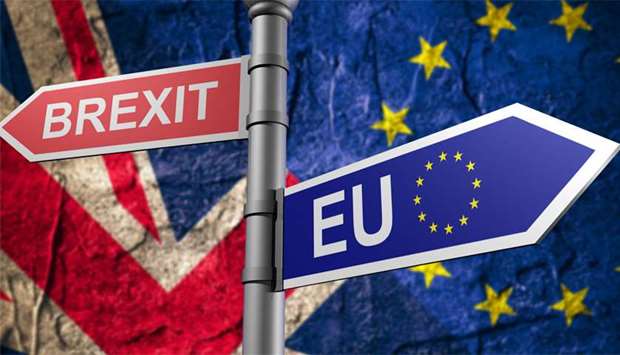*Deepening political chaos over a potential no-deal Brexit straining the economy
Growing Brexit uncertainty as the clock runs down towards a potential no-deal scenario has left Britain’s economy on a knife-edge at the turn of the year, according to a Guardian analysis of economic developments in the past month.
In the final days of a turbulent year, British households are showing signs of strain with the previously distant threat of leaving the EU without a deal becoming a serious possibility.
The Guardian’s latest monthly tracker of economic news, started after the Brexit vote two and a half years ago, does, however, reveal pockets of economic strength – even as business leaders express ever greater concern over the challenge to come.
On the third Christmas since the EU referendum, households are running down their savings or borrowing more than they receive in income to keep on spending – helping to prop up the economy but laying the ground for a potential debt crisis and a slowing rate of consumer spending in future.
To gauge the impact of the EU referendum outcome on a monthly basis, the Guardian has chosen eight economic indicators, along with the value of the pound and the performance of the FTSE 100. Economists made forecasts for seven of those barometers before their release, and in three cases the outcome was worse than expected. In three cases the result was better than forecast, and one outcome was in line with expectations.
The latest dashboard shows business activity came close to flatlining amid the chaos in Westminster, as Prime Minister Theresa May faced a vote of confidence in her leadership after she delayed the parliamentary vote on her Brexit plan until the new year.
Britain’s dominant services sector, which includes banks, shops and restaurants and covers almost four-fifths of the economy, barely grew in November amid rising uncertainty. The pound has fallen to its lowest value against the dollar in almost two years amid weakening prospects for future economic growth.
Among the bright spots for the economy are falling levels of inflation, as lower petrol prices take some pressure off cash-strapped consumers. Average wage growth has also reached the highest level in a decade amid the lowest jobless rate since the mid-1970s, which could help households to rebuild their spending power.
But households remain under pressure after several years of tough economic conditions. Average pay remains below the peak recorded since the financial crisis and although inflation is beginning to fade, it remains elevated.
Writing in the Guardian, Andrew Sentance, a former member of the interest rate-setting monetary policy committee (MPC) at the Bank of England, said: “Even though short-term inflation developments may be favourable for consumers, the longer-term picture is not so positive.”
The lack of clarity over Brexit has prompted consumers to rein in their spending on bigger ticket items, according to the Bank’s network of regional agents, coming just as retailers make the bulk of their profits.
Several big retailers – including the online fashion company Asos – warned that sales in the pivotal month of November were very poor, even though the most recent official figures suggested shoppers continued spending. A number of economists have questioned whether the Office for National Statistics figures are accurate, given the repeat warnings from retailers.
In a sign of the pressures facing families across the UK, constraining their ability to spend, the household savings ratio – which estimates the money households have available to save as a percentage of disposable income – dropped to a record low this year and has remained at those levels.
Writing in the Guardian, David Blanchflower, another former MPC member, warned that retail sales were set to deteriorate, adding: “The fear of crashing out without a deal next year is reducing demand for bigger purchases. The future is too uncertain to keep on spending.
“The Brexit vote has hit consumers in their pockets and harmed the economy.”

